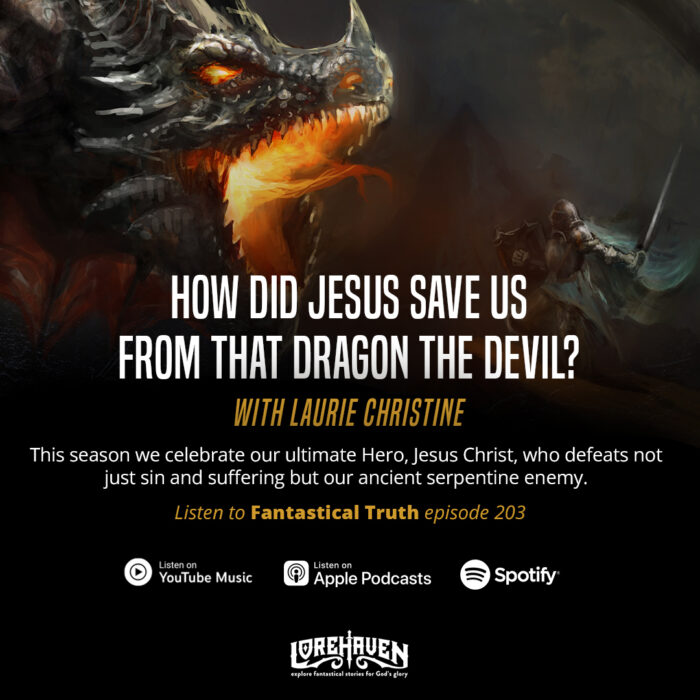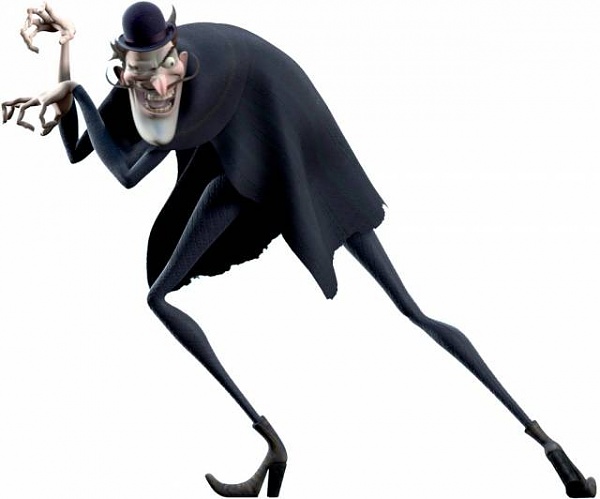Human Nature 1: On The Enemies List
 Bad guys. Villains. Antagonists. We’ve been talking about love on this site, courtesy of Fred Warren’s series. Now, concurrently, I’d love to start a new series about those we love to hate.
Bad guys. Villains. Antagonists. We’ve been talking about love on this site, courtesy of Fred Warren’s series. Now, concurrently, I’d love to start a new series about those we love to hate.
Or, as we may find, one enemy we should love to hate — but too often instead love to love.
Of all conflicts, I believe that battle proves the most intense of all.
But who among us entirely despises conflict itself? In some ways, we like conflict, and that’s okay. Without it we’d have no story. In fact, God’s own true-life story, the Epic Story, alone proves this. Though sovereign and infinite in His holiness, knowledge, and love, He thought it best to permit evil in the world, from several sources, to bring the most glory to Himself.
Part 2 will explore those sources. Scripture mentions three of them. Yet first, it seems beneficial to explore something I’ve noticed in most stories — including speculative novels and films, but going beyond them: a recurring cast of enemy characters.
Example: superheroes dominated last summer’s hot films, followed by alien-invasion flicks. Yet even apart from recent films’ antagonists, the types of bad guys always seem the same.
Bottom-ten hits
People will sometimes talk about the Thirteen (or Sixteen, or Twenty, or whatever) Basic Plots of Stories, which I have often thought is silly because all good stories, anyway, will always follow the Single Basic Plot based on the true Epic Story: good guys, bad guys, conflict, resolution. Less often do people make lists of the (Number) Basic Villains of Stories.
Here I’ve come up with ten, and tried to sort them, in order of least-evil to most-evil.
- Scientists, mad and otherwise.
- Political liberals or government.
- Atheists and/or Communists.
- “Fundamentalist” “Christians.”
- Evil Big Business.
- Political conservatives, government, or military.
- Satan and/or demons.
- Space aliens or other magical/supernatural creatures.
- Organized crime and/or supervillains.
- Hitler/Nazis.

Unusual: In “Captain America: The First Avenger” (2011), The Red Skull is even badder than bad-guy standbys Hitler and the Nazis.
What would this order say about how we think? Of course, you may suggest a revision. In what order would you place those enemies? What enemy categories would you add?
Surprise enemies?
Furthermore, what kinds of stories intentionally flaunt these conventions? We do see more of that going on, as screenwriters and novelists are doing their best to come up with more-creative approaches to story conflicts than the usual tropes. Christian movie reviewer Paul Asay of PluggedIn.com wondered why, in his April 2010 article “The Vanishing Villain”:
Truth is, it’s hard to find a bonafied [sic] villain anywhere in entertainment now. Oh, there are plenty of characters who are “quirky” or “misunderstood” or perhaps even “unpleasant to be around due to unresolved issues.” But most seem more in need of a good shrink or hug than a judgment-laden slapdown.
Which begs the question: Are there still villains out there that can’t be helped with a hug? Are there dragons too dangerous to tame?
 I’m not sure I’d agree with his assertion that it’s harder to spot villains in entertainment. Rather, real villains seem here to stay. Even Asay recognizes this. After citing animated films like How to Train Your Dragon and Meet the Robinsons, both of which have plot twists showing who the “real” villain is, Asay mentions The Dark Knight and its infamous villain The Joker. He’s one enemy who is completely evil. He cannot be saved. Only stopped.
I’m not sure I’d agree with his assertion that it’s harder to spot villains in entertainment. Rather, real villains seem here to stay. Even Asay recognizes this. After citing animated films like How to Train Your Dragon and Meet the Robinsons, both of which have plot twists showing who the “real” villain is, Asay mentions The Dark Knight and its infamous villain The Joker. He’s one enemy who is completely evil. He cannot be saved. Only stopped.
But even the films Asay thinks have “vanishing villains” still have villains, just Not the Ones You Were Expecting. The enemies who seemed obvious simply weren’t the real bad guys.
For example, to slightly spoil How to Train Your Dragon, wild dragon Toothless and others may not be the villains, but the concept of Villainy certainly didn’t vanish. At the climax of the story the Viking heroes find the real foe, and conduct an epic battle to destroy him.
Sometimes such twists prove anti-clever. The “surprise” gray-area revelation about the Real Villain is easy to see coming. And once the “twist” is done, we can revert to good-versus-evil.
Other times, the hero’s response to the villains is flat-out confusing. Assuming here a mostly upright, straightforward protagonist, such a hero can easily figure who are the real villains who will not change, and who are the disadvantaged types who are simply oppressed or taking orders from the real bad guy. Meanwhile audience members are either left to wonder how the hero can tell the difference, or else think they’re certain they can know a difference simply because they’re told there is difference. In Dragon, for example (which I love), the Vikings had misunderstood the dragons and simply needed to coexist with them. Yet why not apply this same principle to the kingpin dragon at the end? How did they know that creature wasn’t also oppressed and needed to be given a chance?
Bad guys make for tricky discernment. Most people know, and Christians know Scripture teaches (Matthew 7:11), that even evil people can do good things and there are “gray areas.”
Yet everyone yearns for just-plain-bad-guys somewhere. Outside ourselves. Easy to see.
And that leads to my own attempt at giving a “clever twist” about the Real Villain. This enemy rarely gets on the list. But it’s worse than all of them. It lurks behind them all. Even the Nazis. And come to think of it, it’s “surprisingly” shown right there in this series’ title.
Next week: The battle lies within.







































Reminds me of that quote from Unbreakable: “But he says there’s always two kinds; there’s the soldier villain – who fights the hero with his hands; and then there’s the real threat – the brilliant and evil archenemy – who fights the hero with his mind.”
I happen to adore my villains, usually to a fault, so I try to construct them so they repulse me or scare me. Because if they make me feel that way, they’ll make the reader feel that way. I think my scariest villain was the Evil Mastermind type who showed up at the beginning and at the end. In between, the heroes were simply caught in a massive war that the mastermind was waging against all the world. Although they heard the mastermind’s voice and saw his plots unfold, they never saw him again until the end, when they finally figured out his one weakness and killed him (via lava. It was a fun story).
But other villains have proven too interesting and likeable to remain villains. I had a robot who despised the hero, because the robot was a copy of him. They battled for years until the hero finally defeated the robot. The robot was repaired by a faithful minion, but the robot had nothing else to live for, since he had been defeated. Then, for some reason, the minion gave the robot a small pet, and the robot’s entire outlook changed. And he began the long, slow process through the gray area toward the ‘hero’ side.
I love villains! They have to be more powerful than the heroes, because a villain less powerful than the heroes is not a threat. 🙂
Okay, I’ll be honest–I like the questionable villians, just because they make the hero’s life much more complicated. If there’s a chance of the villian reforming, it makes it much harder to bury that sword in his chest.
Mind. Blown.
Thanks for a great nuts & bolts article with a spiritual angle.
The thing about villains like the Joker are that they are wholly and irrevocably evil. I can’t say that simply understanding a villain makes him sympathetic or likeable, because I find myself, as I’ve said before, a weird person who will understand motives and still feel no mercy toward the character. That said, what frightens me about the villains I understand is that they remind me how I could be.
It’s not that they aren’t bad guys; they just aren’t the ones responsible…this time.
Or it doesn’t matter who the ‘worst’ bad guy is when they’re all guilty. I think this is one where smaller-scale stories work better than giant epic stories: It’s not a matter of battling through levels of Bad Guy Hierarchy as finding out which guy’s targeting the protagonist. There’s a Leverage episode that specifically deals with that: The team, themselves not ‘the good guys’ start helping one guy only to learn he’s worse than they are and the guy they’re after isn’t any better. It becomes a moral decision: Keep going and let the client go, back out, or take down both.
Kaci, you wrote:
“…I can’t say that simply understanding a villain makes him sympathetic or likeable, because I find myself, as I’ve said before, a weird person who will understand motives and still feel no mercy toward the character. That said, what frightens me about the villains I understand is that they remind me how I could be.”
Good analysis of your own thinking; and, interesting insight–yes, without grace, we could be!
Stephen, it sounds like you’re planning to say that human nature itself is the enemy. That is true, but only in part, as you know.
Perhaps the reason why we have so much trouble with human villains, with identifying them, or identifying with them, or liking or pitying them, is because of what Ephesians 6:12 states:
“For we do not wrestle against flesh and blood, but against principalities, against powers, against the rulers of the darkness of this age, against spiritual hosts of wickedness in the heavenly places.”
Sometimes we do see an absolute villain, such as the Joker, or Sauron. But the big guys are unholy angels, angelic majesties, demons.
Definitely! Scripture seems to mention three villains we must beware. The first you have already guessed, and is the focus of this series. The others are the Devil/demons, and the world — that is, the sin and sinful consequences of others’ sinful natures, or “flesh.”
My goal is not to downplay the other sources of evil we must fight, and which great stories show us. Rather, it’s to question why we tend to emphasize External villains, not the flesh.
My guess is because we prefer the devil we know to the exterior (and real) Devil we don’t.
But if I were the Devil, one of my greatest triumphs would be exaggerating my powers and gladly accepting “blame” for sin, while for many people, the worst evils come from within.
Yes, terrible things come from within! Yes, we must see that, and remain vigilant!